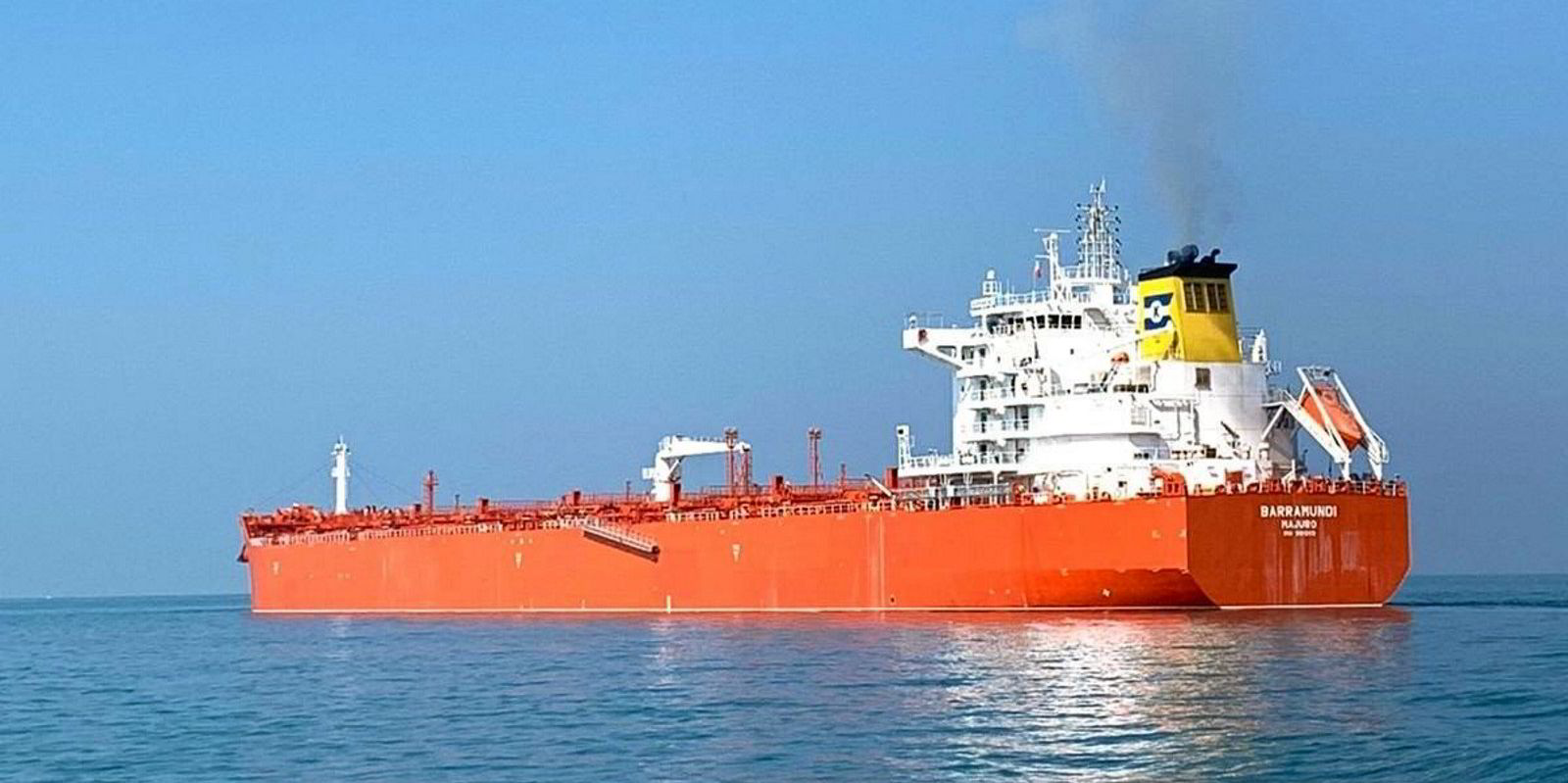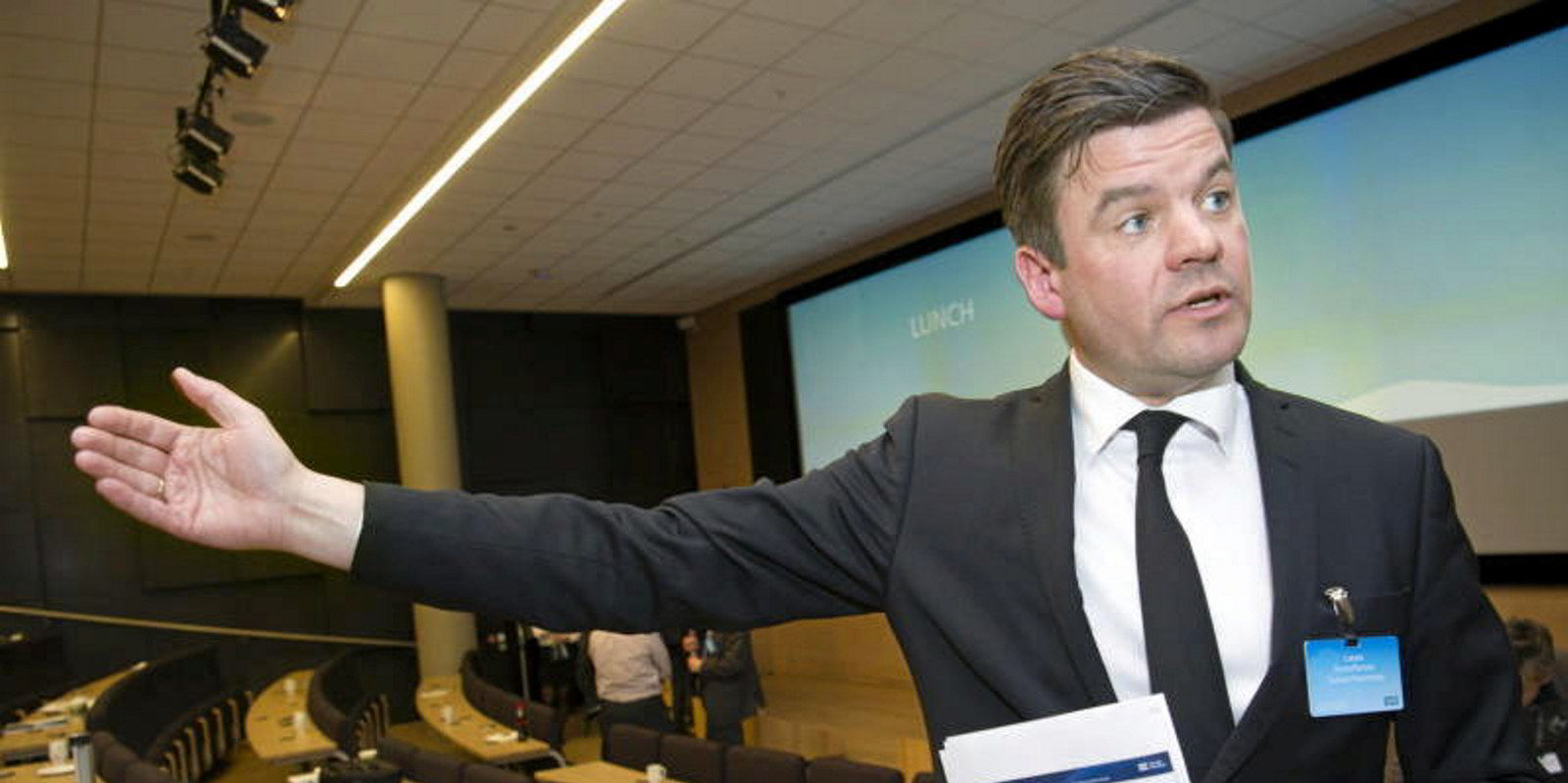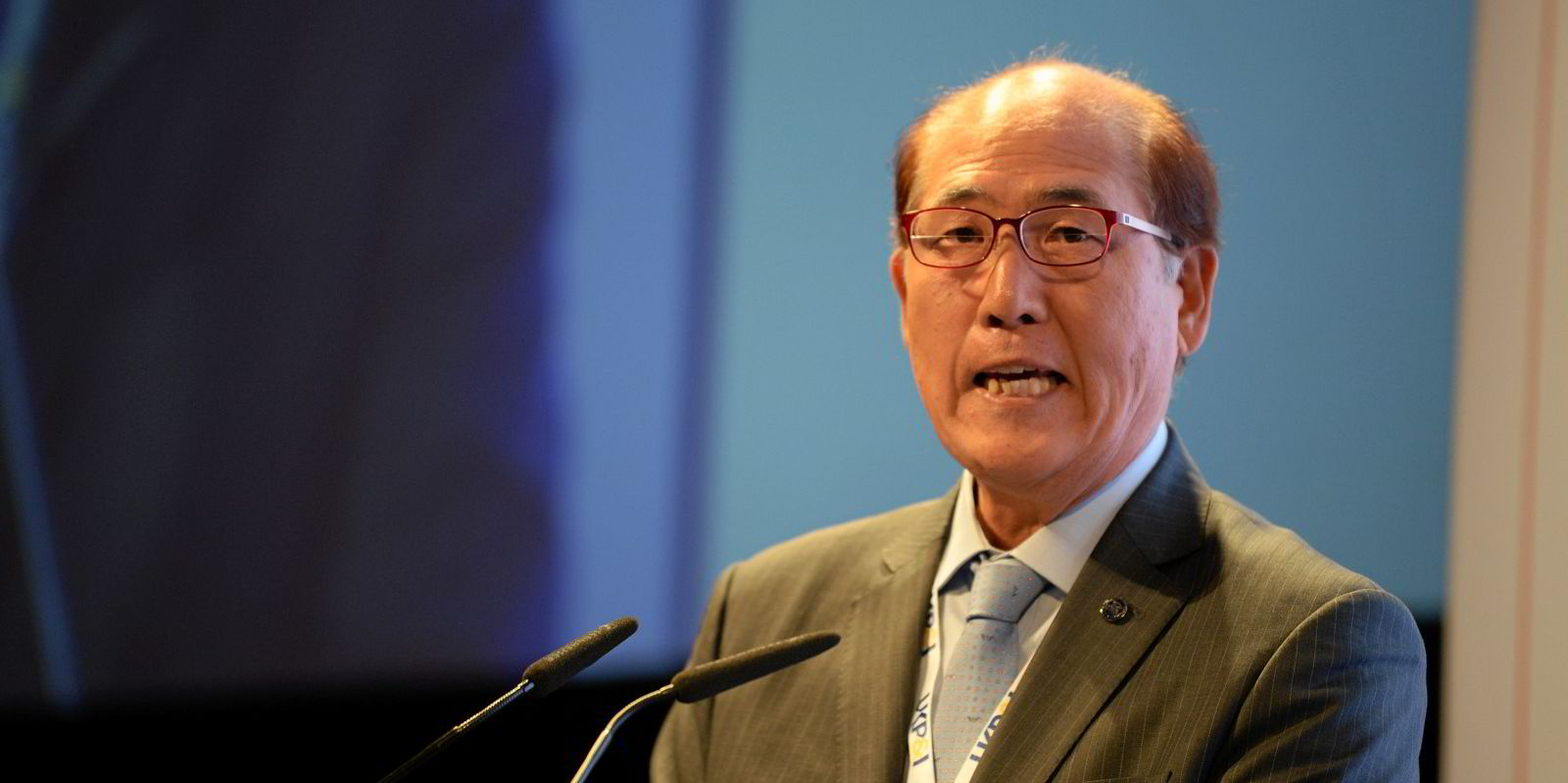Klaveness Combination Carriers (KCC), a spin-off of Norwegian shipowner Torvald Klaveness, has won its longest contract of affreightment to date for carrying refined products with its midsized vessels.
Oslo-listed KCC said it sealed the one-year contract with an unnamed “major international charterer” and that the deal can be extended by up to two years.
KCC’s Cleanbu fleet of eight 82,500-dwt vessels is capable of transporting both refined products and dry bulk cargoes and would be utilised to fulfil the contract.
“This is definitely a major contract for us,” chief executive Engebret Dahm told TradeWinds. “We have over the last one to two years built a track record proving the Cleanbu's capability to switch between the dry bulk and the tanker cargoes without any problems.”
The company estimates the deal translates to 12 to 18 months of employment time for one of the Cleanbu ships.
“This has been important for the successful conclusion of this contract with this customer,” Dahm said.
No further details on the rate level and charterer's identity are disclosed.
Dahm described the contract as “an important milestone… reflecting a growing tanker market acceptance” for its combined carriers to reduce carbon emissions.
KCC has claimed the Cleanbu vessels’ carbon footprint would be 30% to 40% lower than that of standard ships due to reduced ballasting time.
Dahm stressed KCC could therefore enjoy a cost advantage under the proposed inclusion of shipping in the European Union Emissions Trading System, which takes into account the last ballast legs of ships trading in the EU.
“By having very little ballasting in trades between where standard dry bulk and tanker vessels have long ballasts…the total emissions for our performed voyage is then substantially less than the standard ships,” he said.
Meanwhile, the International Maritime Organization has unveiled new rules to regulate vessels' greenhouse gas emissions that will come into force by 2023.
But critics — including trade body Bimco — believe the new measures could prompt unnecessary ballasting legs due to their methodology.
Dahm said the IMO’s new carbon intensity regulation is an “extremely poor measure” in cutting emissions as it does not reflect the emission from the performed transport work.
“That’s the way the IMO has decided and we think it’s a stupidity. But I don’t think it will affect how the charterers evaluate ships,” he added.






